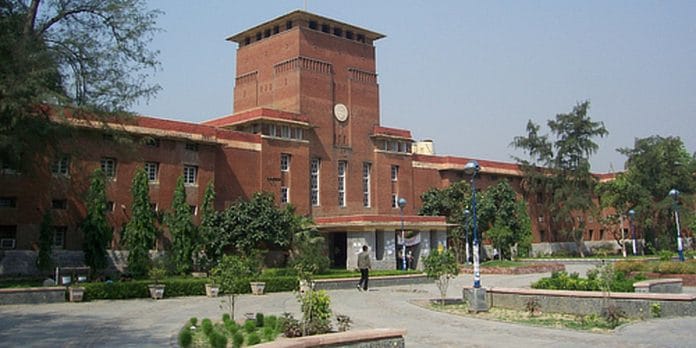India has 868 higher education institutions, and the plan is to grant autonomy to 15%. A list of 62, including JNU & BHU, was released last month.
New Delhi: More colleges and universities will soon have reason to cheer, as the Modi government pushes to complete its target of granting autonomy to 15 per cent of India’s higher education institutions.
Over 65 institutions, including Delhi University’s St Stephen’s College, are set for graded autonomy — which means greater freedom from higher education regulators like the University Grants Commission and the All India Council for Technical Education. Under this plan, the institutes will have greater freedom to decide their own courses, set up off-campus centres and academic collaborations.
However, this also means they will be able to decide on the fee structure, which has led to a worrisome situation for students and parents, because it could mean the fees are likely to go up.
How many institutes?
There are 868 institutions of higher education in India, including colleges, universities, private and deemed, of which the plan is to grant graded autonomy to around 130 initially.
Last month, the Centre granted graded autonomy to 62 institutions, including Jawaharlal Nehru University, Banaras Hindu University, Tata Institute of Social Sciences, Jadavpur University, and the University of Hyderabad.
Government officials close to the developments are tightlipped about which institutions will get autonomy in the second round, but one source said St Stephen’s College would be on the list.
“St Stephen’s had applied for autonomy, and it is going to get it this time. As for which other institutes will receive it, there is a meeting in May to discuss the next list,” said the source.
On what basis is autonomy granted?
Autonomy has been granted to institutions on the basis of the National Assessment and Accreditation Council (NAAC) score, which defines the quality of an institute.
Institutes that have a 3.5-plus score are granted complete freedom from regulators; those with a lower score will face some amount of government/regulatory control.
“Since the basis of granting autonomy was NAAC score, those colleges that do not have a NAAC score have been asked to get it, including all Delhi University colleges,” the source added.
Criticism of the plan
While the government has called it “liberalisation of education”, activists and education experts argue that autonomy will only make higher education a thing for those who can afford it, as institutes will have the liberty to increase fees on their own.
A nation-wide protest opposing autonomy was also called by students of various universities in Delhi last month, which was attended even by Delhi’s deputy chief minister Manish Sisodia who holds the education portfolio.
Human resource development Minister Prakash Javadekar has been stressing on the fact that autonomy will not mean that government will not provide funds. However, a circular sent by the finance ministry in early 2017 asked all autonomous institutions to generate 30 per cent of funds on their own.






